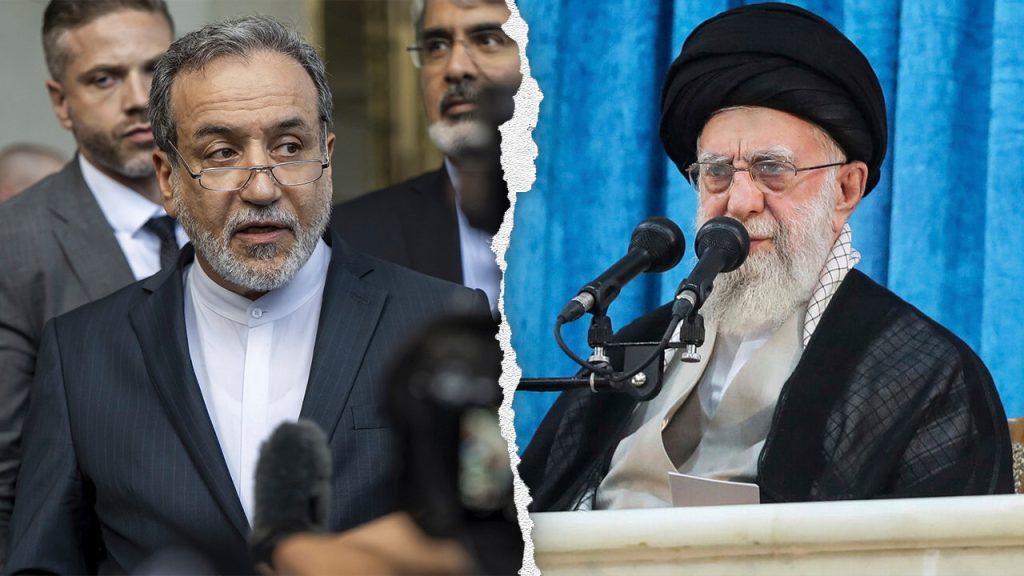In a recent interview, Iranian Foreign Minister Abbas Araghchi has acknowledged significant damage to Iran’s nuclear facilities following strikes by the United States and Israel. This admission contrasts sharply with comments made by Iran’s Supreme Leader, Ayatollah Ali Khamenei, who minimized the extent of the damage. The assessments from multiple sources—including the International Atomic Energy Agency (IAEA)—indicate that Iran’s nuclear sites have suffered considerable harm, which could complicate any future negotiations between Iran and the U.S.
| Article Subheadings |
|---|
| 1) Acknowledgment of Damage |
| 2) Divergence in Official Opinions |
| 3) The Role of the IAEA |
| 4) Future Negotiations in Question |
| 5) Implications for U.S.-Iran Relations |
Acknowledgment of Damage
In an unprecedented move, Abbas Araghchi, Iran’s Foreign Minister, openly conceded the extent of damage inflicted on the nation’s nuclear facilities due to recent airstrikes attributed to the United States. During an interview broadcast on state television, he stated, “the level of damage is high, and it’s serious damage.” This statement marks a significant moment, as it contradicts the long-standing narrative maintained by Iranian officials regarding the impact of these military actions.
The U.S. and Israeli strikes have become a point of contention between the involved parties, with Araghchi emphasizing that both countries—along with Israel—have reached a consensus regarding the serious damage inflicted. This collaborative agreement among nations, which typically are at odds with each other, underscores the gravity of the situation.
Divergence in Official Opinions
Despite widespread acknowledgment of damage among Iranian officials, Ayatollah Ali Khamenei has taken a distinctly different stance. He reiterated his belief that the strikes did not achieve any significant goals and referred to the perspective of the U.S. as inaccurate. “The Americans failed to achieve anything significant in their attack on nuclear facilities,” he reportedly stated.
Khamenei’s comments appear to serve a dual purpose: rallying internal support and reinforcing a narrative of resilience against external threats. His attempts to project strength come amid international scrutiny of Iran’s nuclear ambitions and military capabilities. While he downplayed the assessments made by others, including his own foreign minister, the dissonance raises questions about Iranian leadership strategy moving forward.
The Role of the IAEA
The International Atomic Energy Agency (IAEA) has emerged as a critical player in the ongoing dialogue about Iran’s nuclear capabilities. Rafael Grossi, the Director General of the IAEA, confirmed on Tuesday that extensive damage had been observed at several Iranian nuclear sites, including key uranium conversion and enrichment facilities. This acknowledgment adds another layer of credibility to the concerns surrounding Iran’s nuclear program and the effectiveness of recent military actions.
Grossi’s statements not only reinforce the claims made by Araghchi but also emphasize the IAEA’s role as an independent watchdog in measuring compliance with international agreements. The agency’s findings may influence not only Iranian domestic policy but also shape international diplomatic relations.
Future Negotiations in Question
In the wake of the strikes, prospects for future negotiations between Iran and the U.S. remain uncertain. While Araghchi expressed some openness to resuming talks, he indicated that the strikes had complicating effects, making it more challenging for Iran to participate in negotiations. The geopolitical landscape is further complicated by Iran’s perception of U.S. complicity with Israeli military actions.
Iran’s previous reluctance to engage in talks had stemmed from its concerns over perceived injustices and a lack of trust in the U.S. administration’s commitment to a fair agreement. The recent developments may serve to entrench those views further, raising the stakes for diplomatic interventions. The possibility of negotiations remains, but the road ahead seems fraught with historical grievances and recent hostilities that could impede progress.
Implications for U.S.-Iran Relations
The implications of these developments for U.S.-Iran relations are profound. The recent acknowledgment of damage by Iranian officials could lead to a shift in both domestic and international perceptions of Iran’s nuclear capabilities. The strikes may serve not only to weaken Iran’s existing facilities but could also unify the U.S. and its allies against perceived threats from Iran.
In the political arena, U.S. President Donald Trump has exhibited optimism regarding resuming talks with Iran, stating, “We’re going to talk to them next week.” However, despite this optimistic sentiment, definitive plans for meetings are yet to materialize. Analysts suggest that the complexity of Iran’s internal politics and external pressures will significantly influence any future agreements.
| No. | Key Points |
|---|---|
| 1 | Iranian Foreign Minister acknowledges serious damage to nuclear facilities due to U.S. strikes. |
| 2 | Ayatollah Ali Khamenei downplays the extent of the damage, emphasizing strength over reality. |
| 3 | IAEA confirms extensive damage at Iranian nuclear sites, lending credibility to damage assessments. |
| 4 | Future negotiations between Iran and the U.S. are complicated but not ruled out. |
| 5 | Recent events could strengthen U.S. and allies’ resolve against Iran’s nuclear ambitions. |
Summary
The recognition of significant damage to Iran’s nuclear facilities marks a pivotal moment in regional politics. While officials like Araghchi reveal the reality of the situation, Khamenei‘s attempts to maintain a strong public image point to deep-rooted complexities in Iranian governance. With the IAEA providing external validation of damage, the implications for U.S.-Iran relations could be substantial. As both nations navigate this contentious landscape, the path to any future agreements appears laden with hurdles, and the geopolitical stakes remain high.
Frequently Asked Questions
Question: What were the recent airstrikes on Iran’s nuclear facilities about?
The airstrikes were aimed at neutralizing threats from Iran’s nuclear program, believed to be advancing despite international concerns.
Question: How has Iran responded to the damage done to its nuclear sites?
Iran has publicly acknowledged the damage through statements from its officials, although conflicting narratives exist within the government.
Question: What does the future hold for U.S.-Iran negotiations?
While future negotiations are not entirely ruled out, the possibility remains complicated due to recent military actions and a lack of trust between the two countries.


